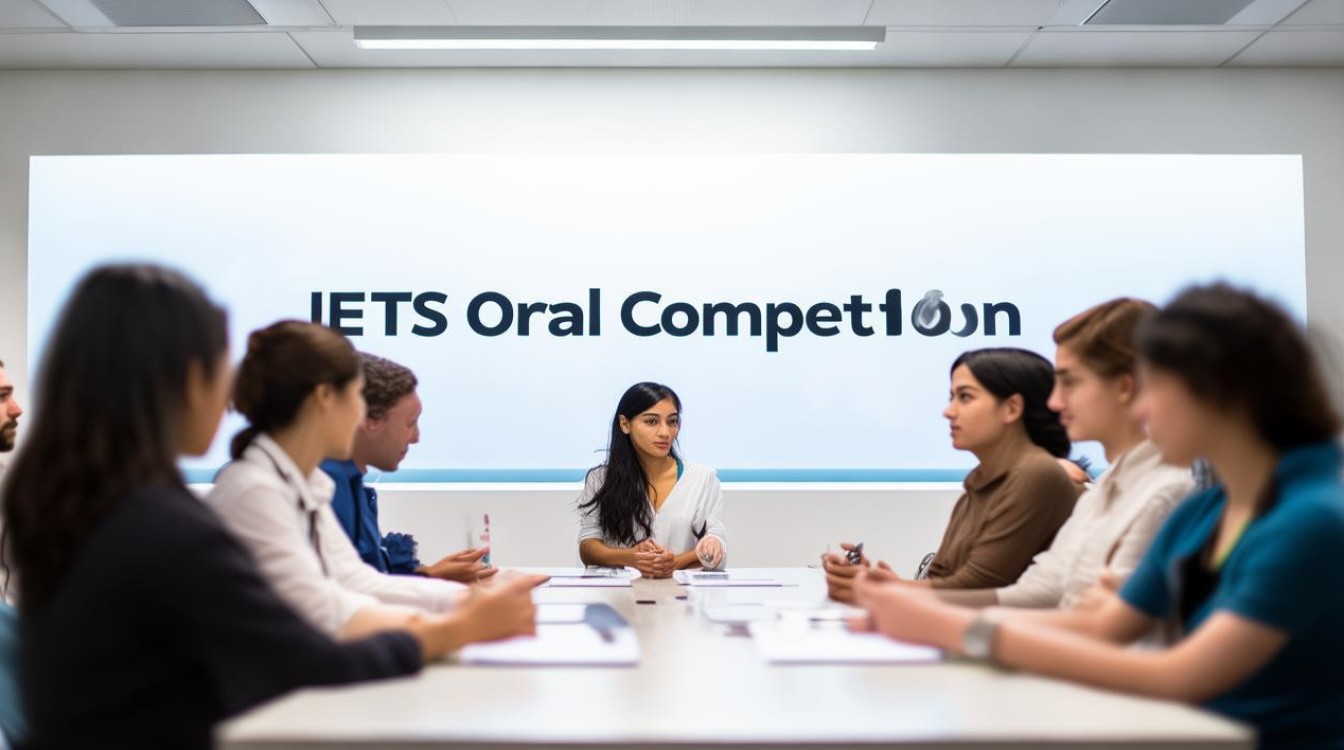在雅思口语考试中,"competition"是一个高频且值得深入探讨的话题,无论是讨论个人经历、社会现象还是抽象概念,考生都需要展现对这一主题的全面理解与辩证思考,本文将从competition的多维内涵、雅思口语中的常见考点、高分应答策略以及文化差异等角度展开分析,帮助考生构建系统化的答题框架,提升语言表达的深度与广度。

competition的核心内涵与维度
competition(竞争)并非单一概念,其内涵随语境变化而丰富,从经济学视角看,它是市场活力的催化剂,推动企业创新与效率提升;从心理学角度,适度的竞争能激发个体潜能,但过度竞争则可能导致焦虑与压力;在社会层面,竞争反映了资源分配的稀缺性,也塑造了阶层流动的路径,雅思口语考试中,考官常通过以下维度考察考生对competition的理解:
- 个人经历:如学习、工作中的竞争场景
- 社会现象:教育竞争、职场竞争等热点话题
- 价值观探讨:竞争与合作的对立统一关系
- 未来趋势:全球化背景下竞争形式的变化
雅思口语Part 1中的competition考点
Part 1作为热身环节,问题通常聚焦个人体验。"Do you like competition?" "What kind of competition are you in?" 考生需避免简单回答"yes"或"no",而应结合具体经历展开,以下提供高分应答范例:
问题:Is there much competition in your school?
应答:
"Yes, academic competition is quite intense in my school, especially in the science department. For instance, we have monthly quizzes where rankings are posted publicly. While this motivates some students, others feel pressured. I personally view it as a double-edged sword – it drives me to study harder, but I also believe collaboration is equally important."
应答技巧解析:
- 具体化场景(monthly quizzes, science department)
- 展现辩证思维(double-edged sword)
- 自然衔接词汇(while, personally, but)
Part 2话题卡深度解析
当遇到Describe a competition you participated in时,考生需构建完整叙事链,以下为结构化建议:
| 答题模块 | 内容要点 | 示例句句 |
|---|---|---|
| 事件背景 | 竞赛名称、时间、目的 | "I took part in a national debate competition in my sophomore year..." |
| 准备过程 | 挑战、克服方法 | "The biggest challenge was impromptu speaking, so I practiced with a timer daily..." |
| 关键细节 | 高潮时刻、具体数据 | "In the final round, our team argued on renewable energy policies, scoring 92 out of 100..." |
| 个人成长 | 技能提升、观念转变 | "This experience taught me that competition isn't about defeating others but self-improvement..." |
Part 3抽象问题应对策略
Part 3常考察批判性思维,如"Is competition necessary for success?" 此类问题需展示多角度分析:
高分应答框架:
- 立场明确:"I believe competition is beneficial but not indispensable..."
- 分层论证:
- 积极层面:激发创新(如科技行业的专利竞赛)
- 消极层面:导致短视行为(如应试教育下的刷题现象)
- 解决方案:"A balanced approach that combines healthy competition with cooperation would be ideal..."
- 升华主题:"Ultimately, the goal should be personal growth rather than mere victory."
文化差异对竞争观的影响
东西方文化对竞争的认知存在显著差异,西方文化强调个人英雄主义,如硅谷的"赢家通吃"现象;东方文化则更注重集体和谐,如日本企业的"年功序列"制度,考生在答题时若能结合此类文化对比,将展现跨文化视野。
"In Western countries, competition is often seen as a driver of individual excellence, exemplified by entrepreneurs like Elon Musk. In contrast, many Asian societies value 'collective competition', where team achievements are prioritized over personal glory. This cultural nuance significantly shapes people's attitudes towards competitive environments."
语言表达升级指南
为达到雅思口语7分及以上,考生需掌握以下高级表达:
- 替代词:rivalry (代替competition), contend (代替compete)
- 短语搭配:fierce competition, cutthroat environment, level the playing field
- 句式结构:虚拟语气("Were there no competition, innovation might stagnate.")、倒装句("Not only does competition boost efficiency, but it also fosters creativity.")
备考实用建议
- 素材积累:建立competition相关语料库,包括案例(如奥运会、商业竞争)、名言("Competition brings out the best in products and the worst in people." – David Sarnoff)
- 模拟训练:针对Part 2话题进行限时2分钟录音练习,重点检查逻辑连贯性
- 反馈修正:请教师评估使用连接词(however, consequently)的频率是否恰当
相关问答FAQs
问题1:如何在口语考试中避免对competition话题的负面表述?
解答:即使讨论竞争的弊端,也应采用建设性语气,不说"Competition makes me stressed",而改为"Intense competition can be challenging, but it teaches me stress management skills." 通过转化视角展现积极心态,符合雅思考试倡导的积极价值观。
问题2:当遇到不熟悉的competition相关话题时,如何即兴发挥?
解答:可采用"关联迁移法",若被问及"competition in space exploration",可联系熟悉的"technology competition"或"academic competition",通过类比展开:"Space competition resembles tech innovation races – both require massive investment but drive breakthroughs that benefit humanity." 这种策略确保内容充实且逻辑自洽。











